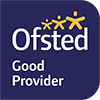Mountbatten Primary School – Term Dates
The School Year 2024-2025
Autumn Term 1 2024
Tuesday 3rd September 2024 – Friday 25th October 2024
Autumn Term 2 2024
Monday 4th November 2024 – Friday 20th December 2024
Spring Term 1 2025
Tuesday 7th January 2025 – Friday 14th February 2025
Spring Term 2 2025
Monday 24th February 2025 – Friday 4th April 2025
Summer Term 1 2025
Tuesday 22nd April 2025 – Friday 23rd May 2025 (Easter Monday 21st April 2025 & May Day Monday 5th May 2025)
Summer Term 2 2025
Tuesday 3rd June 2025 – Friday 18th July 2025
Training Days 2024-2025
- Autumn Term – Monday 2nd September 2024
- Spring Term – Monday 6th January 2025
- Summer Term- Monday 2nd June 2025, Monday 21st July 2025 & Tuesday 22nd July 2025
Key assessment dates for 2024-2025
Monday 12th May – Thursday 15th May 2025 Key Stage 2 SATS for Year 6 pupils
Monday 9th June – Friday 13th June 2025 Phonics Screening Check for Year 1 pupils
Monday 2nd June – Friday 13th June 2025 Multiplication Check for Year 4 pupils
The School Year 2025-2026
Autumn Term 1 2025
Tuesday 2nd September 2025 – Thursday 23rd October 2025
Autumn Term 2 2025
Monday 3rd November 2025 – Friday 19th December 2025
Spring Term 1 2026
Tuesday 6th January 2026 – Friday 13th February 2026
Spring Term 2 2026
Monday 23rd February 2026 – Friday 27th March 2026
Summer Term 1 2026
Tuesday 14th April 2026 – Friday 22nd May 2026 ( May Day Monday 4th May 2026)
Summer Term 2 2026
Monday 1st June 2026 – Friday 17th July 2026
Training Days 2025-2026
- Autumn Term – Monday 1st September 2025 & Friday 24th October 2025
- Spring Term – Monday 5th January 2026
- Summer Term- Monday 13th April 2026 & Monday 20th July 2026

“The school is calm and orderly. Pupils walk around school sensibly and are courteous to one another.”

“Pupils say they feel safe in school.”

“Subject leaders are knowledgeable about their subjects.”

“Pupils listen carefully to what adults say. They join in class discussions enthusiastically.”

“There are a wide range of school clubs.”

“Staff welcome the highquality training they receive. They feel proud to work in the school.”

“Staff are well trained in teaching children to read.”

“Pupils access a range of visits and activities beyond their own experiences.”

“Staff work closely with professionals from external agencies to provide support for pupils with SEND.”

“Adults help pupils who fall behind.”

“Pupils learn how to keep safe when using the internet.”

“There is a clear focus on the teaching of early mathematics and reading.”

” Some teachers check carefully to find out which pupils are stuck and which pupils need further challenge during lessons.”

“Leaders and teachers make regular checks to see how well pupils with special educational needs and/or disabilities (SEND) are doing.”

“Children start to learn to read as soon as they enter the school.”

“Pupils recommend the school to their friends.”

“The school enjoyed recent success when the computing club won a local area competition using their coding skills.”

“Pupils say that behaviour is good.”

“Teachers who are new to the school welcome the support they receive.”

“There are respectful relationships between adults and pupils.”

“Senior leaders, alongside the multi-academy trust, have provided subject leaders with training.”

“Curriculum plans are well sequenced.”

“Pupils enjoy attending school.”

“Leaders have thought carefully about the curriculum plans they have introduced.”

“Pupils support each other well when they are completing their work.”

“Pupils enjoy learning about a wide range of subjects.”

“Leaders have considered what pupils might need to know to broaden their understanding of the world around them.”

“Leaders work well
with members of the multi-academy trust to support staff.”

“Staff encourage
pupils to be independent from an early age.”

“Teachers appreciate the support they receive from subject leaders to help them improve their teaching.”

“Teachers check what pupils have learned and remembered each term.”

“There is a strong team culture within the school.”

“The early years environment is inviting and well organised.”

“Children settle into school quickly.”

“The ‘Mountbatten 50’ challenges pupils to complete a range of interesting activities
before they leave the school.”

“The residential visit to Robinwood encourages pupils to experience new challenges and work collaboratively with their friends.”



